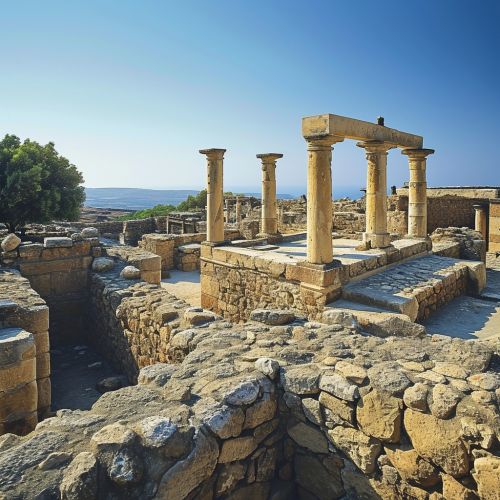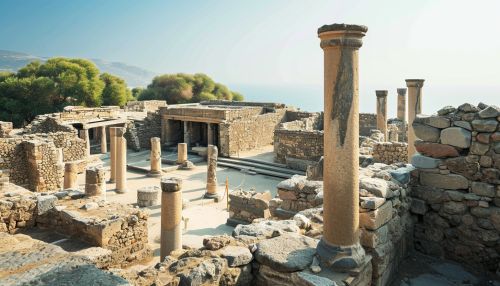Greek Civilization
Introduction
Greek civilization, also known as Hellenic civilization, is a historical period that began in the 8th century BC and lasted until the end of the Byzantine Empire in the 15th century AD. This civilization is considered one of the most influential in the world, shaping the course of Western civilization and leaving a significant cultural and scientific legacy.
Origins
The origins of Greek civilization can be traced back to the Minoan civilization and the Mycenaean civilization, which flourished during the Bronze Age. These early civilizations laid the groundwork for the emergence of classical Greek culture in the Archaic period.


Archaic Period
The Archaic period (800-500 BC) was a time of significant political and cultural development in Greece. During this period, the Greeks began to form city-states, known as polis, which became the central political units of Greek civilization. The Archaic period also saw the development of Greek art, literature, and philosophy.
Classical Period
The Classical period (500-323 BC) is often considered the pinnacle of Greek civilization. This era was marked by the dominance of Athens and the establishment of democracy. The period also witnessed the Persian Wars, the Peloponnesian War, and the rise of Macedon under Philip II of Macedon.
Hellenistic Period
Following the death of Alexander the Great, the Hellenistic period (323-30 BC) began. This era was characterized by the spread of Greek culture across the eastern Mediterranean and the Middle East, leading to a new cultural synthesis known as Hellenistic culture. The period ended with the Roman conquest of Greece.
Roman Greece
After the conquest by Rome, Greece became a province of the Roman Empire. Despite this, Greek culture continued to thrive and had a profound influence on the Romans. This period is often referred to as Roman Greece.
Byzantine Period
With the fall of the Western Roman Empire, the Eastern Roman Empire, also known as the Byzantine Empire, emerged with its capital at Constantinople. The Byzantine Empire, which lasted from the 4th to the 15th century AD, was heavily influenced by Greek culture and is often considered a continuation of the Greek civilization.
Legacy
The legacy of Greek civilization is vast and enduring. Its contributions to art, philosophy, politics, and science continue to influence Western civilization. Greek thought and culture have shaped the development of Western political systems, philosophical thought, scientific understanding, and artistic expression.
